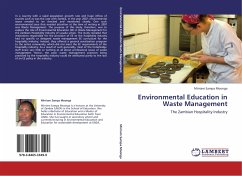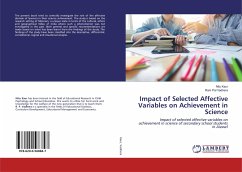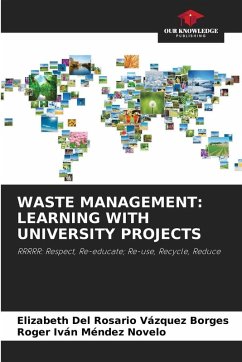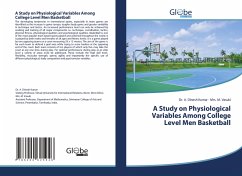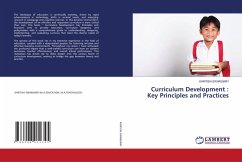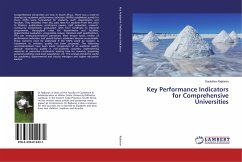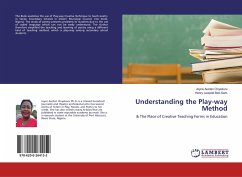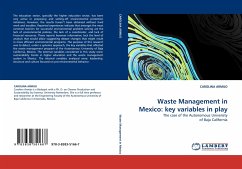
Waste Management in Mexico: key variables in play
The case of the Autonomous University of Baja California
Versandkostenfrei!
Versandfertig in 6-10 Tagen
52,99 €
inkl. MwSt.

PAYBACK Punkte
26 °P sammeln!
The education sector, specially the higher education sector, has been very active in proposing and setting-off environmental protection initiatives. However, the results haven t been obtained without hard work and troubles. Reported experiences indicate that amongst the most common barriers for successful environmental problem solving are the lack of environmental policies, the lack of a coordinator, and lack of financial resources. These reports however informative, lack the level of analysis that would allow suggesting deeper changes that might result in more efficient environmental programs...
The education sector, specially the higher education sector, has been very active in proposing and setting-off environmental protection initiatives. However, the results haven t been obtained without hard work and troubles. Reported experiences indicate that amongst the most common barriers for successful environmental problem solving are the lack of environmental policies, the lack of a coordinator, and lack of financial resources. These reports however informative, lack the level of analysis that would allow suggesting deeper changes that might result in more efficient environmental programs. The purpose of this research was to detect, under a systemic approach, the key variables that affected the waste management program of the Autonomous University of Baja California, Mexico. The external variables considered in this study were: sustainability trends in higher education and the waste management system in Mexico. The internal variables analyzed were: leadership, structure and culture focused on pro-environmental behavior.



